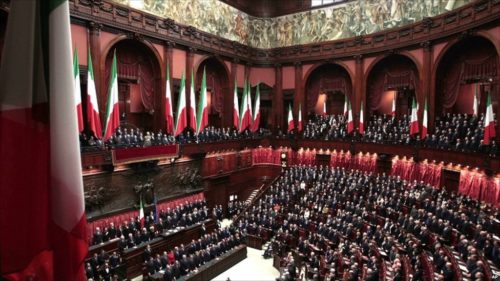Waiting For A Star To Fall
The case of Matteo Renzi

Former Italy’s Prime Minister and Democratic Party (PD) secretary Matteo Renzi (AFP/Andreas Solaro)
As it often occurs in life, there are certain songs that become nationwide hits but that personally irritate you. Before Despacito and similar constructions, back in the 1970s, there was a hit song in my country called “I’m not a gambler but I lose”. Needless to say, every time I hear it on the radio/TV, I switch the channel. It is a similar reaction many people have to politicians, and according to the recent Italian elections, what many Italians feel towards Matteo Renzi, the onetime star of Italian and European politics. I still remember talking to a pro-Berlusconi college friend some years ago, when Renzi was still the Mayor of Florence. She stated that Renzi is the only politician from the centre-left that she could vote for. So how has the support for Renzi fallen apart throughout the years?
What the Brexit referendum symbolises in the career of David Cameron, that is the 2016 constitutional reform referendum for Renzi, who afterwards resigned as the Italian Prime Minister. There are certain comparisons one could draw when looking at the two. Both obtained their positions at a very young age, with Renzi being the youngest Italian Prime Minister of all time, and Cameron being the youngest one in the last 200 years. Both of them were viewed as fresh faces of their political parties and belonged to the reformist and the liberal wing of the party. In addition to that, both of them ended their political spells much earlier than expected, and were often accused of being elitist or out-of-touch, especially by populists.
However, as I previously wrote about David Cameron, this time I will focus only on Matteo Renzi. Renzi became the Italian Prime Minister in 2014. His main motto was to fix the Italian economy, and one cannot help but to compare his initiatives and work ethic to French President Macron. Renzi’s first big challenge were the European elections in May 2014. The result was astonishing, as the political map of Italy suddenly became completely red, with the Partito Democratico winning 40,8 % of the votes. Partito Democratico joined the European Socialists, and became one of the cornerstones of their political group in the European Parliament. At the same time, Renzi insisted on the post of the High Representative/Vice-President of the Commission for Federica Mogherini.
 Italian Parliament (BBC)
Italian Parliament (BBC)
Renzi managed to push his labour reforms and to leave the Italian economy in a better shape than it was before him, but it came as a cost. He alienated many of his voters by moving too close to the political centre, thus causing splits within his own party. He was also accused of leading the party in an authoritarian way, which led to certain disillusionment. Finally, the Five Star Movement emerged as another contender to fight him, so he had to defend his positions not only from the political right, but also from the hard left and the ambiguous populists. A very difficult situation to handle. It all culminated with the December 2016 referendum, as he promised to resign if it fails. By taking this political gamble, in the end the referendum basically turned out to be a vote of confidence, which Renzi did not survive.
Despite this political message, Renzi again ran for the leadership election of his Partito Democratico, causing the left-wing of the party, which viewed him as a Blairite, to split and form their own political movement. He was re-elected with almost 70 percent of the party membership vote, but outside of Partito Democratico, the popularity of Matteo Renzi was strongly diminishing, with the well-known outcome of the recent parliamentary elections.
It is fascinating how in a year and a half, Matteo Renzi managed to destroy his political career. Many Italians with whom I’ve spoken to, said that he shouldn’t have tried to come back in the first place. However, now he left his party in a struggling shape, with strong concerns about its future role and debates on whether or not to do a coalition with the Five Star Movement, their vicious critics in the last five years. In line with the tradition, Italian politics is never boring.
